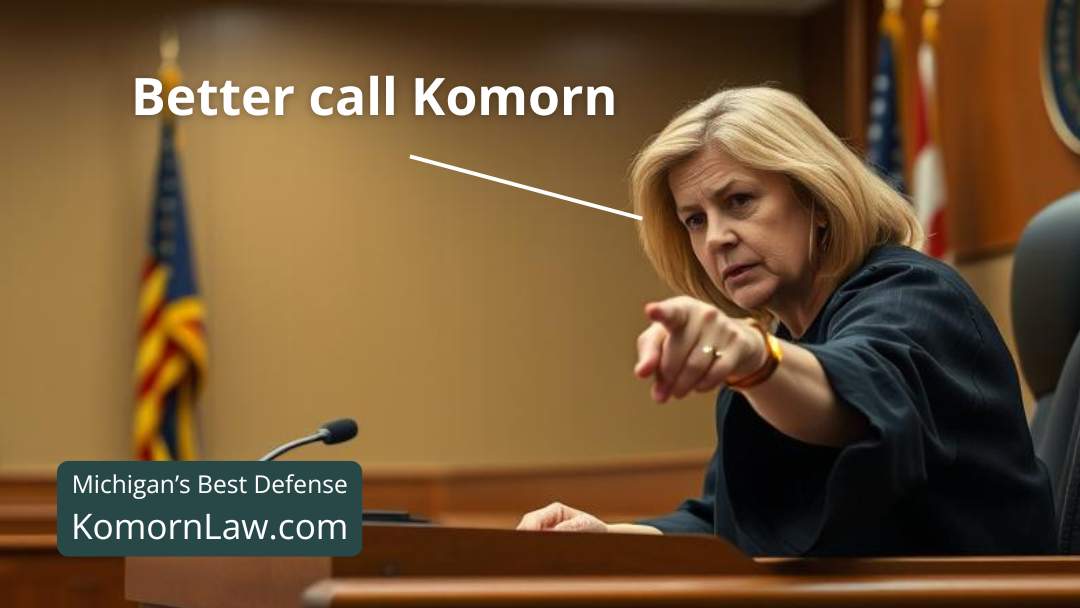Criminal Sexual Conduct (CSC)Criminal sexual conduct (CSC) in Michigan refers to a range of sexual offenses that vary in severity based on factors like the nature of the act, the age of the victim, and whether force or coercion was involved.Michigan law categorizes...

Criminal Sexual Conduct (CSC) Second Degree
Criminal Sexual Conduct (CSC) in Michigan: Definitions, Penalties, and Legal References.
Criminal Sexual Conduct (CSC) is a set of laws in Michigan that define and penalize various forms of sexual offenses.
These laws are categorized into four degrees, with each degree reflecting the severity of the crime.
The Michigan Penal Code specifies these offenses, found under the Michigan Compiled Laws (MCL), and each degree has different elements and penalties.
Second-Degree Criminal Sexual Conduct (MCL 750.520c)
Second-degree CSC involves sexual contact (fondling or touching for sexual purposes) rather than penetration. The circumstances are similar to first-degree but without penetration:
- The victim is under 13 years old.
- The victim is between 13 and 16, and the offender is a family member or in a position of authority.
- The offender uses force or coercion.
Penalties: A conviction for second-degree CSC can result in up to 15 years in prison, with lifetime electronic monitoring if the victim is under 13.
Use You Right To Remain Silent
If you have been accused or charged with a crime.
Say nothing to anyone. Talk to us first.
Our firm is experienced in both State and Federal courts defending clients.
CALL NOW
Additional Information
Criminal sexual conduct convictions can lead to mandatory registration as a sex offender, especially if the victim is a minor. Michigan takes these offenses seriously, and those convicted can face lifelong consequences, including prison time and sex offender registration.
For more detailed definitions (MCL 750.520a) information on the statutes, you can review Michigan’s laws through the Michigan Legislature website.
Second or subsequent offense; penalty
- In the event that an individual is convicted of a second or subsequent offense under sections 520b, 520c, or 520d, the resulting sentence for these offenses shall include a mandatory minimum of no less than 5 years.
- For the purposes of this section, an offense is deemed a second or subsequent offense if, before the conviction of the second or subsequent offense, the individual has previously been convicted under section 520b, 520c, or 520d, or any comparable statute at the federal or state level for a criminal sexual offense, which includes but is not limited to rape, carnal knowledge, indecent liberties, gross indecency, or attempts to perpetrate such offenses.
Criminal Sexual Conduct Articles
Note: This article provides a general overview and does not substitute for legal advice. Anyone charged with a CSC offense should consult an attorney for specific legal guidance.
Recent

Criminal Law FAQs – Traffic Offenses
Michigan Criminal Laws FAQs Traffic OffensesAccording to Michigan State Law (Michigan Compiled Laws - MCL), Traffic Offenses encompass a wide range of violations related to the operation of motor vehicles on public roads and highways. These offenses are primarily...

Criminal Law FAQs – Drunk and Disorderly
Michigan Criminal Laws FAQs Drunk and DisorderlyAccording to Michigan State Law (Michigan Compiled Laws - MCL), there isn't a specific statute that solely defines "Public Drunkenness" as a statewide criminal offense in the same way some other states might have a...














